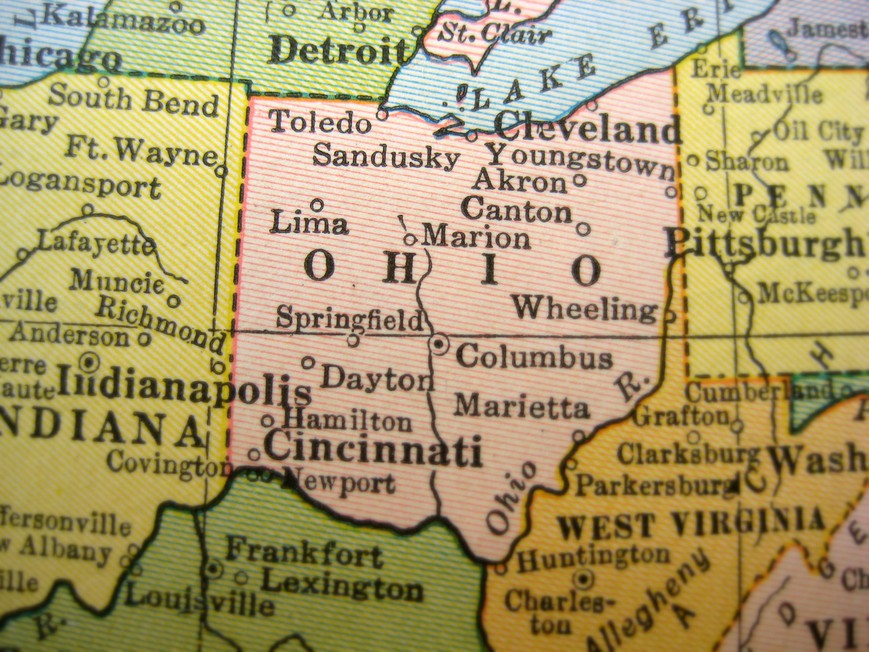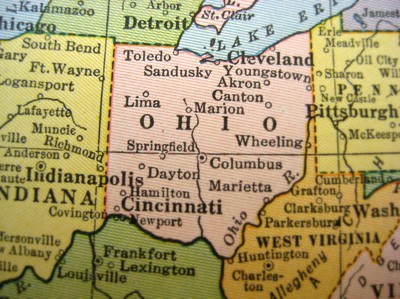

Lawmakers could decide to launch real money online poker in Ohio and exclude online casino gaming, in order to address fears of cannibalization by the state’s four land-based casinos.
That was just one of the “well-received” proposals to emerge from four meetings of the Study Commission on the Future of Gaming in Ohio. The 11-member panel was tasked with studying expansion beyond mobile sports betting, which launched on January 1, 2023.
But another proposal, to tether expanded igaming licenses to land-based properties, would require BetMGM Poker, PokerStars, and WSOP (and, for that matter, BetRivers Poker, once the platform launches) to form partnerships with the four land-based casinos since none of them have their own poker platform:
- Hard Rock Casino Cincinnati
- Hollywood Casino Columbus
- Hollywood Casino Toledo
- Jack Cleveland Casino
The tethering idea could be awkward, considering Jack Casino executives told the panel they oppose expanded igaming.
“Proponents claim that igaming supplements existing revenue with new consumers, while opponents argue it cannibalizes casino revenue by diverting existing consumers away from brick-and-mortar facilities and onto smartphone apps operated by large out-of-state companies,” wrote Rep. Bride Rose Sweeney (D-Westlake), one of eight lawmakers on the panel. “The truth may lie somewhere in the middle as there are recent studies on both sides of the issue.”
It should be noted that BetMGM, BetRivers, Caesars, and FanDuel are already live in the state for mobile sports betting. State lawmakers could decide to launch online poker but not have the licenses tethered.
Under that scenario, BetMGM Poker OH would operate under the expanded igaming license of MGM Northfield Park, a racino. Scioto Downs and Hollywood Gaming at Dayton Raceway, two additional racinos, would provide market access for WSOP OH and BetRivers Poker OH, respectively.
A fourth racino, Belterra Park, could be the future partner of PokerStars OH — FanDuel and PokerStars are both Flutter brands.
Other Ideas: Pilot Program, Tethered Licenses
The 11-member Study Commission on the Future of Gaming in Ohio was originally another creature entirely — a six-member Joint Committee on Sports Gaming. It was the panel that helped get sports betting off the ground on New Year’s Day 2023.
A bill passed during the current session renamed and repurposed the panel to study expanded igaming and hold public hearings on the matter. Last Friday, the panel released a 354-page report for the General Assembly and immediately disbanded, per the law that created the panel.
Sweeney took note of suggestions made during the hearings, including proactive steps that the state could take now to prepare the state’s workers and businesses for any future expansion of igaming — even if it’s just online poker at first.
“The state could implement a limited pilot program and gauge its impact on Ohio’s market compared to neighboring states,” she wrote in a letter included in the report. “The state could legalize only one type of igaming, such as online poker, to test the waters while still chipping away at the illicit market.
“Another proposal that seemed well-received was requiring licenses to be linked to the existing brick-and-mortar industry in order to have a more seamless transition.”
Connecticut, Michigan, New Jersey, Pennsylvania, Rhode Island and West Virginia are states with regulated real money online poker that require operators partner with a land-based casino — although Pennsylvania can also award licenses to a so-called Qualified Gaming Entity (QGE), of which there are presently two for online casino: Bally Casino PA and Golden Nugget Casino PA. Pennsylvania allows for six QGEs for online poker.
Nevada has issued a license to just one operator, WSOP NV. Meanwhile, Rush Street Interactive (RSI), parent company of BetRivers, holds an igaming monopoly in Delaware — :for now.
Debate Over Lottery Games Rekindled
Another idea to emerge from the panel’s igaming expansion report isn’t a new idea at all
Sen. Nathan Manning (R-North Ridgeville), one of the panel’s co-chairs, suggested that instead of expanding igaming in the usual sense — by adding online poker and casino to sports betting — that he would reintroduce SB 269, a failed bill from the last legislative session (2021-2022) to let the Ohio Lottery offer electronic lottery games.
“Other states have shown that these online products are very popular to the consumer and they also bring in substantial revenue to the state,” Manning wrote in a separate letter for the report. “However, we must proceed with caution, as some of these products may need more vetting since they are more easily accessible to the consumer and could potentially have more addictive qualities.”
Manning added, “In the short term, I do believe we should move forward with a portion of SB 269 and allow [the Ohio] Lottery to offer draw games and multi-state games online.” The Ohio Council of Retail Merchants (OCRM) said it supports the reintroduction of SB 269 as another future bill.
Still, Manning (and Sweeney) sounded supportive of expanded igaming. Republican Reps. Cindy Abrams (R-Harrison), Jay Edwards (R-Nelsonville) and Jeff LaRe (R-Violet Township) also back expansion, while Sens. Al Landis (R-Dover) and William DeMora (D-Columbus) said they were opposed. Hollywood Casino Columbus is in DeMora’s district.
Ohio Would Only Trail PA for Market Size
If lawmakers were to establish a regulated Ohio online poker market, it would be the nation’s second-largest market in terms of population, trailing only Pennsylvania.
The Buckeye State has 11.8 million residents, the Keystone State has 13 million. It should be noted that Ohio is bigger than Michigan (10 million residents, ranks 10th in population), which has become an igaming powerhouse in just a few years.
BetMGM Poker, BetRivers Poker, PokerStars, and WSOP will all be interested in launching in Ohio — even more so if it joins a multi-state gaming compact for poker, the Multi-State Internet Gaming Agreement (MSIGA), which includes Delaware, Michigan, Nevada, New Jersey, and West Virginia.
Ohio would be MSIGA’s biggest member if it joined today, supplanting Michigan.

